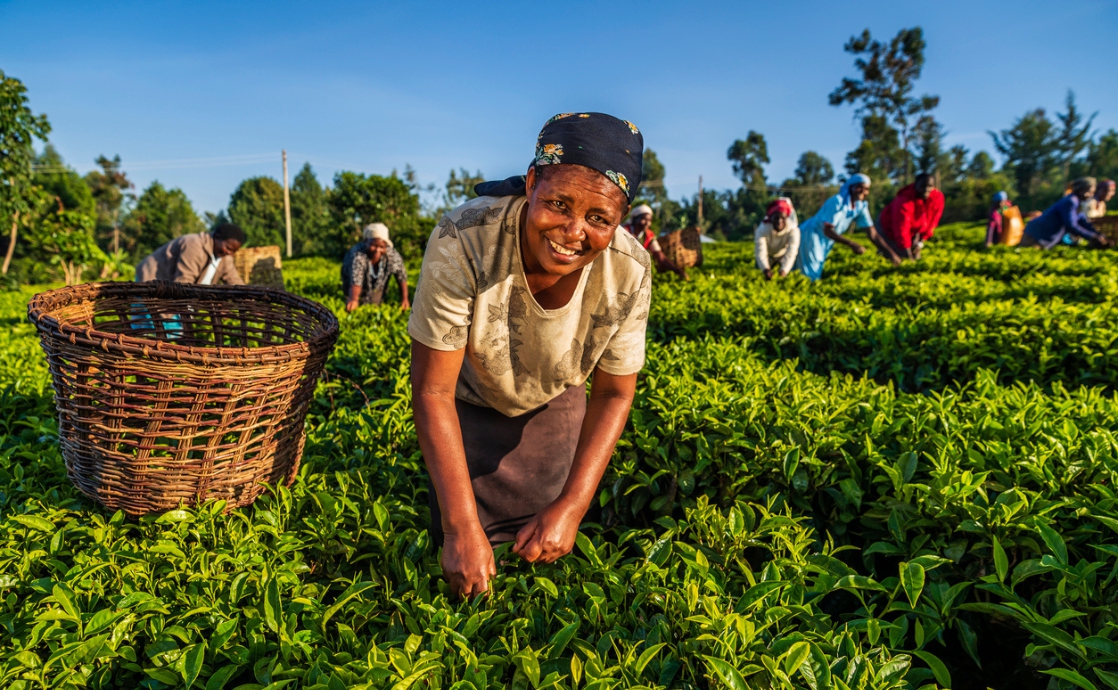The views expressed in our content reflect individual perspectives and do not represent the authoritative views of the Baha'i Faith.
The Baha’i Faith, which emerged in the middle of the 19th century, spans the global transition from a largely rural existence to an urban one — and the Baha’i writings pay special attention to farmers.
In 1844, when the Baha’i Faith began, the world’s population had recently surpassed one billion for the first time — and 90 per cent of the planet’s people lived in rural areas. The Industrial Revolution and its urbanizing forces was just getting underway in a few Western countries.
At the time of Abdu’l-Baha’s passing in 1921, a major shift to urban life was taking place, but rural people still comprised 80 percent of the world’s population. Understandably, then, the discourse and actions of the central figures of the Baha’i Faith often focused on the well-being of farmers and villages.
Many of the Bab’s family — the forerunner and herald of Baha’u’llah — and most of his followers were farmers. In his writings, the Bab made a remarkable statement. He said that “farmer” is one of the names of God and that by calling farmers manifestations of a name of God, farmers must be treated as royalty — as both kings and farmers are expressions, manifestations, and reflections of God’s names. This sentiment toward farmers was adopted by Baha’u’llah and Abdu’l-Baha.
RELATED: The Baha’i Economic System Starts with the Farmer
As a young man, Baha’u’llah was involved in the operation of his father’s agricultural estates. In his early years, Baha’u’llah gained firsthand experience of the various factors involved in routine farm operations, including demanding physical work. He would remain involved with land management, crop and animal production, and day-to-day farming operations until his imprisonment and exile at the age of 35 when persecution of the early Babis stripped him of all his land and possessions.
When Baha’u’llah embraced the Babi Faith in 1844, his first journey to promote the new Faith was to his ancestral home in Mazandaran province. He set out for the village of Takur, and during his visit, the peasant farmers flocked to see and hear him. “Such was the effect of His words and deeds . . . that the very stones and trees of that district seemed to have been quickened,” reported the historian Nabíl-i-A‘zam.
Even during Baha’u’llah’s lifetime, villages in Iran, such as Saysan and Mahfurzak, flourished by adopting his teachings on spiritual and material development. Farmers from Saysan visited Baha’u’llah in the Prison City of Akka and begged him to come home with them to a place with fresh air and healthy vegetables. In return for their kind invitation, he sent them home with a sack of seed potatoes, a new introduction at that time, which soon became an important crop in their region.
In his Tablet of the World, revealed in 1891, Baha’u’llah makes his most significant statement about the centrality of agriculture in the new world order he prescribed. The timing of the tablet in 1891 corresponded to a tremendous upheaval underway in Persian society directly related to agriculture, known as the “Persian Tobacco Protest.” Baha’u’llah encouraged the Shah of Persia to pay close attention to the “vital and important matter” of agriculture and to adopt best practices from other countries.
Abdu’l-Baha continued in this vein, elaborating on his father’s statements and devoting much attention to the development of farming villages in his native Iran. The flood of his guidance reached even the smallest villages across the country. One remarkable tablet, which addressed the Baha’is in the village of Kishih, mentioned nearly one hundred and sixty residents by name. In it, the small company of persecuted believers living in this remote corner of a land unaffected by modernity were summoned to raise their eyes above the level of local concerns and to see the implications of unity on a global scale.
Abdu’l-Baha was able not only to stimulate the expansion of the Persian Baha’i community, but to shape its consciousness and collective life. The result was the emergence of a culture, however localized, that was unlike anything humanity had ever known. Abdu’l-Baha’s focus on village life extended beyond Persia, as well. As far away as Burma, in the village of Daidanaw, the Baha’i community flourished, and even today is known as “Abdu’l-Baha’s village.”
In a speech he gave to labor leaders and socialists in Montreal in 1912, Abdu’l-Baha said that “the peasant class and the agricultural class exceed other classes in the importance of their service.” During his travels to the global West, he spoke on the welfare of farmers and the development of the village economy. He delighted in the well-ordered farmlands of Germany and, in almost every country he visited, gathered seeds and plants to bring back to the Holy Land to add to the Baha’i gardens. After his return from the West, Abdu’l-Baha gave his gardener, Isma’íl Aqa, a few apple pips to plant. He had kept them from a large apple He had bought in America. He was deeply fond of Isma’íl Aqa, a native of the Baha’i farming village of Saysan. Speaking of the garden around his house in Akka, he observed:
Ismael Aqa has turned the desert into a blooming garden. Is he not a magician? Is he not wonderful? The rose garden outside has become the mirror of the heart of Isma’íl Aqa. We hope that a time may come when the gardens of the hearts of the people of the world may be like unto the garden of Isma’íl Aqa.
Abdu’l-Baha loved nature, and was himself a gardener. Like fellow gardeners everywhere he found in his small plot a peaceful refuge. Shoghi Effendi — Abdu’l-Baha’s grandson and the Guardian of the Baha’i Faith — reported that even under extreme duress due to the machinations of his enemies:
So imperturbable was Abdu’l-Baha’s equanimity that, while rumors were being bruited about that He might be cast into the sea … or hanged on the gallows, He, to the amazement of His friends and the amusement of His enemies, was to be seen planting trees and vines in the garden of His house, whose fruits when the storm had blown over, He would bid His faithful gardener, Isma’íl Aqa, pluck and present to those same friends and enemies ….
So does the emphasis placed on agriculture and rural people by the central figures of the Baha’i Faith still make sense now that a majority of people live in cities?
RELATED: Adasíyyih: A Baha’i Village Becomes a Model Farming Community
While the percentage of the world population that is rural is much lower than it was in the early days of the Baha’i revelation, the numbers are much higher. More than three billion people, nearly half of the world’s population, live in rural areas, mostly smallholder farmers and their families. While the world is increasingly urban, there are still an estimated three million villages around the world.
Given a growing world population of eight billion people, producing food and other agricultural products has become more important than ever. Furthermore, agriculture is the main area of interaction between people and the physical environment, making regenerative agriculture a key to achieving a sustainable civilization.
The early focus of the Bab, Baha’u’llah, and Abdu’l-Baha on agriculture and rural development continues to make sense in today’s world. Learning about their activities, including the story of Abdu’l-Baha’s model Baha’i village Adasíyyih, offers lessons and inspiration as Baha’is everywhere strive to release the society-building powers of their Faith.
This article is based on the book “’Adasíyyih: The Story of ’Abdu’l-Bahá’s Model Farming Community,” by Paul Hanley, Baha’i Publishing, 2024, 336 pages. The book is currently available exclusively from www.bahaibookstore.com/Adasiyyih-P10838.
















Comments
Sign in or create an account
Continue with Googleor